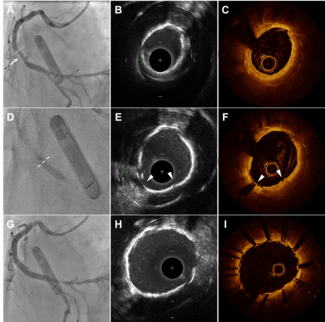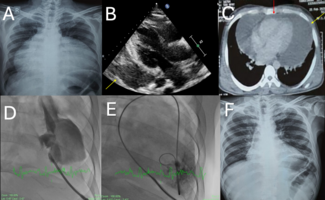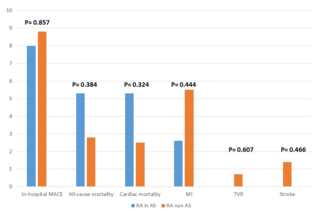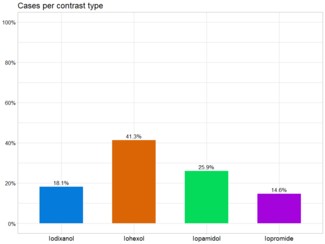Board Games
“Be careful what you wish for, as it just might come true.” –Anonymous
As I prepare to register for my eighth postresidency certification or “board” exam, I increasingly wonder about the explosion of specialty and subspecialty certification and question my own enthusiasm for pursuing more and more diplomas. At the same time, looking ahead, I also wonder whether eight exams will be enough for me. Or will I ultimately need to demonstrate competency and expertise in additional emerging subspecialty fields of cardiovascular medicine as new boutique board exams come to market in order to evidence my continued commitment to the practice of cardiovascular medicine?
How did I get to this place? Mentors, prospective employers, recently graduated co-fellows, and the internet all implored me to be marketable in today’s challenging employment environment. If I wanted a good position in a good city with a good salary, or frankly any job at all, I would need to be the best…which I could only prove through additional board certification.
During fellowship, my many mentors trained me well to provide high-quality, efficient, and cost-effective patient care across the spectrum of cardiovascular disease and technologies. But as I approached the end of my training, colleagues whispered of payers threatening to withhold procedural reimbursement from Cardiologists not specifically certified as Nuclear Cardiologists, Echocardiologists, etc. And so I signed up for almost every board examination that the professional societies offered. As an interventionalist-in-training with a strong personal and professional interest in peripheral vascular disease, I was also aware that I might end up in a cardiovascular practice environment where Interventional Radiologists, Vascular Surgeons, and Interventional Cardiologists all “competed” for endovascular procedures. And it was suggested to me that I would benefit from passing the American Board of Vascular Medicine (ABVM) Endovascular Medicine and Vascular Medicine board certification examinations to better demonstrate my vascular expertise to my hospital credentialing review board, my department chief, national insurers, my colleagues, referring physicians, the local community, and prospective patients (now increasingly referred to as “customers”). And so my diploma collection grew.
As I traveled this path, I was dismayed not only by the outrageous costs of each exam, but also by the fact that no provision was made for reduced testing fees for first-time test-takers (ie, residents and fellows). During training, registration fees and study materials can easily add up to 25% of a single year’s after-tax income. What other profession burdens trainees in this manner? As the primary provider for a family of five during fellowship training, this was an immense financial strain in my final year of training. And I was surprised to discover that the American Council on Graduate Medical Education did not consider this to be a medical trainee quality-of-life issue with which to be concerned.
Today, as a new early-career Cardiologist, I now have the maze of maintenance of certification (MOC) to contend with. The current onerous requirements that have been a nuisance to all physicians are an almost overwhelming burden to me as I try to navigate the unique proprietary requirements of the American Board of Internal Medicine (ABIM), the ABVM, the National Board of Echocardiography (NBE), the American Registry of Diagnostic Medical Sonography, and the Certification Board for Nuclear Cardiology (CBNC) for certifications in Internal Medicine, Cardiovascular Disease, Interventional Cardiology, Endovascular Medicine, Vascular Medicine, Adult Echocardiography, Vascular Ultrasound, and hopefully soon Nuclear Cardiology. Worse still, I discovered that there is little to no reciprocity for MOC “points” among these different cardiovascular certification authorities, and that nearly none of the hundreds of hours I spend each year on daily self-study, clinical research, graduate medical education, or committee duties “count” as professional education to any of these certifying bodies. And then there is the retesting requirement. In my case, even before I take my Nuclear Cardiology exam this winter, I will need to recertify in Internal Medicine if I desire to maintain the right to that certification. In another four years, the rest of the cycle will begin again as I prepare to retake each of these eight exams all over again, one by one.
All of my diplomas currently lie in their original envelopes in a box in my basement as each becomes less and less meaningful to me as I accumulate more and more paper evidence of my excellence as a physician. My most recent ABIM diploma, in Interventional Cardiology, was even stamped with a bold new legal disclaimer by the ABIM suggesting that I may or may not actually be certified depending on whether I am or am not meeting MOC requirements.
While I place much blame at the feet of the ABIM, I also wonder whether the American College of Cardiology (ACC), the Society for Cardiovascular Angiography and Interventions, the American Society of Echocardiography, the American Society of Nuclear Cardiology, the Society for Vascular Medicine, and other specialty clubs are also to blame. Although we Cardiologists are currently at the vanguard of the debate over MOC reform, we have also been major offenders in the past with our perhaps well-intentioned creation of the NBE, the CBNC, the ABVM, and other certifying bodies, in addition to our continued push for additional ABIM-approved specialty, subspecialty, and sub-subspecialty certifications. All of the different tribes of Cardiologists worked separately to help create this problem. The question is, can we all now work together to effect a solution?
For newly graduated Cardiovascular Disease physicians, most jobs will require us to be well-rounded, full-spectrum Cardiologists, Echocardiologists, Nuclear Cardiologists, Vascular Cardiologists, and in some cases, Interventional/Structural/Endovascular or Electrophysiology Cardiologists. We need to be masters of all of these trades to succeed in our day-to-day work, for ourselves and for our patients. And I believe most training programs equip us well for success by providing solid training in all of the facets of modern cardiovascular medicine. I know mine did.
But I wonder if perhaps our system should have simply certified me in “Cardiovascular Medicine” followed next by “Interventional Cardiovascular Medicine.” Maybe the future should more closely resemble the past. I, for one, look forward to such a day. If our fellowship training, board certification process, and criteria for fellowship in the ACC are appropriately focused and stringent, shouldn’t these suffice? Is it naïve of me to hope for the day where “MD, FACC, board certified in Interventional Cardiovascular Medicine” would be credentials enough for me, for my hospitals, for payers, for lawmakers, for my patients, and for society-at-large? Perhaps with hard work and dedication, my generation of cardiologists can streamline a system that has grown too complex. But if not, I’ll still be prepared to compete with my own alphabet soup of letters…
Alexander G. Truesdell, MD, FACP, FACC, FSCAI, FSVM, RPVI
PinnacleHealth CardioVascular Institute
Harrisburg, Pennsylvania, USA
Email: atruesdell@yahoo.com


















